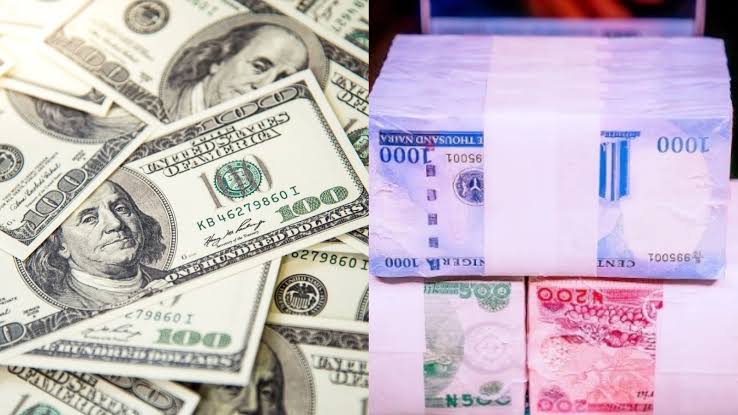Advertisements
The naira depreciated significantly on the Nigerian Autonomous Foreign Exchange Market window to N1,561.98/$1 on Wednesday, July 10, 2024. This was 2 per cent below the N1,532.58/$1 it closed the previous day, data from FMDQ Securities Exchange showed.
Shatta Wale Responds After Mother Accuses Him Of Neglecting Her For Over 10 Years (Video)
This would be the third consecutive depreciation of the naira, coming at a time when external reserves are stronger and turnover in foreign exchange is on the rise. It takes the currency’s value to a new low not seen since March 18, 2024, when it closed at N1,597.25/$1. The recent devaluation leaves the naira inches closer to hitting N1,600, barely two weeks after breaching the N1,500 threshold.
Advertisements
Dollar to Naira Exchange Rate at Black Market (Aboki FX) July 10, 2024: USD to NGN CBN Rate
This trend raises concerns about the stability of the currency and broader economic implications for Nigeria.
Advertisements
External Reserves and Forex Turnover:
While this is going on, the country’s external reserves have shown strength, and foreign exchange turnover has been on an upward trajectory. These seeming positive indicators have failed to restrain the fall of the naira, thereby showing deeper structural problems within the foreign exchange market.
Historical Context and Implications:
The current level of the naira is the lowest since mid-March, pointing to a persistent downward trend. The recent drop has set off alarms among many economic and financial analysts, who feel that continued depreciation may trigger further inflationary pressures to harm economic stability.
Factors that Contribute to Depreciation
Several factors are combining to depreciate the naira. Some of these are:
Market Dynamics:
Increased demand for foreign exchange amidst limited supply weighs on the naira.
Economic Policies:
While such policies opening the forex market have at times been successful, at other times unsuccessful, and have often caused short-term volatility.
Global Economic Conditions:
The volatility of global oil prices alone, then, or the performance of the international economy directly influences the forex earnings and reserve position of Nigeria.
Future Outlook:
Sliding further down to N1,600 would be a very loud alarm bell. If the momentum is sustained, the CBN could take more stringent efforts towards stabilizing the currency. These could be tighter monetary policy, interest rate modification, or stricter forex controls.

